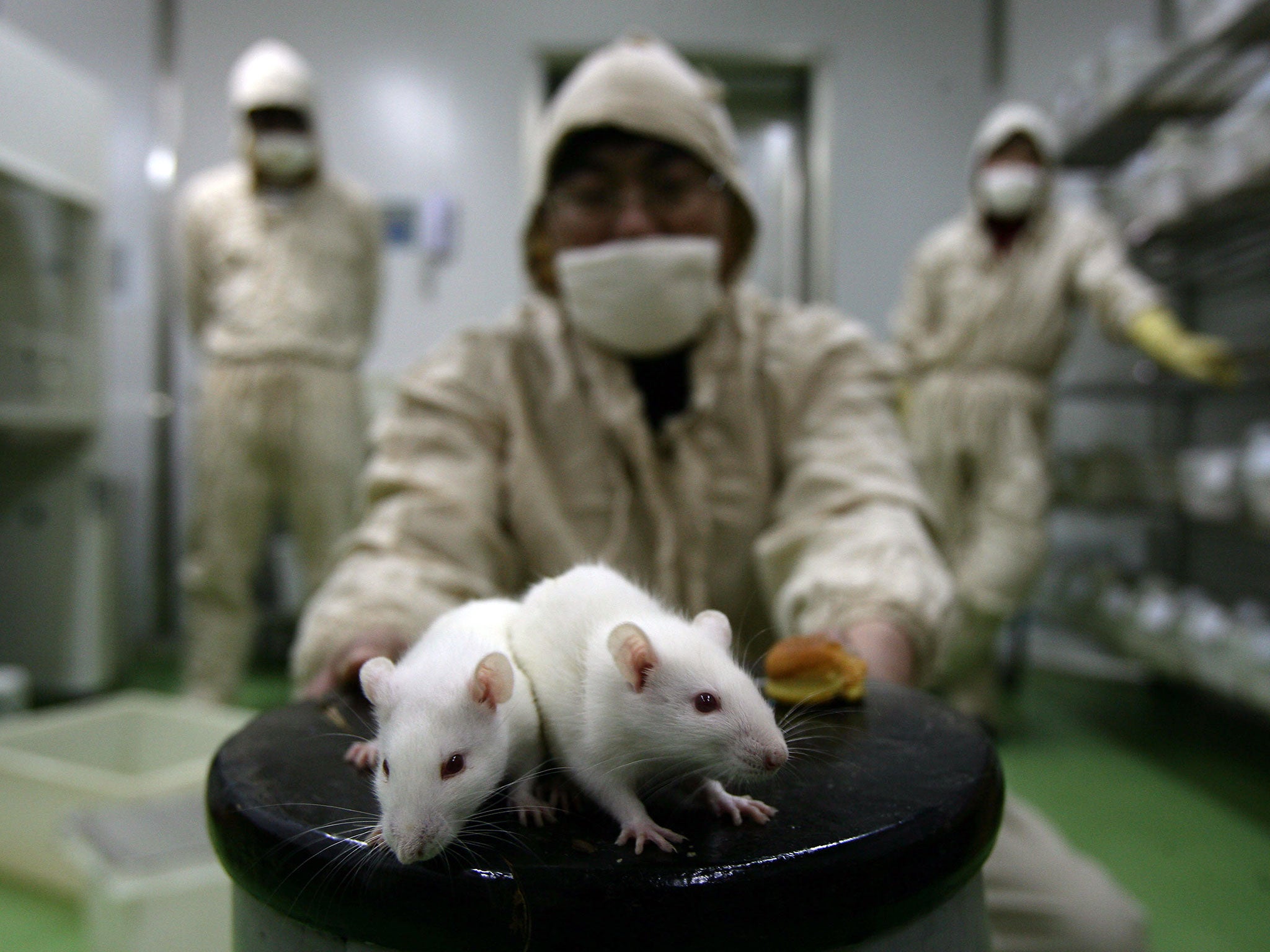Medical charity group accused of pressuring members to back animal testing
A resolution by the umbrella group asking members to acknowledge to donors their support of animal research either in principle or practice is to due to come into force later this month

Your support helps us to tell the story
From reproductive rights to climate change to Big Tech, The Independent is on the ground when the story is developing. Whether it's investigating the financials of Elon Musk's pro-Trump PAC or producing our latest documentary, 'The A Word', which shines a light on the American women fighting for reproductive rights, we know how important it is to parse out the facts from the messaging.
At such a critical moment in US history, we need reporters on the ground. Your donation allows us to keep sending journalists to speak to both sides of the story.
The Independent is trusted by Americans across the entire political spectrum. And unlike many other quality news outlets, we choose not to lock Americans out of our reporting and analysis with paywalls. We believe quality journalism should be available to everyone, paid for by those who can afford it.
Your support makes all the difference.An organisation representing some of Britain’s leading medical charities has denied that it is compelling its members to make a public declaration of support for animal testing.
Anti-vivisectionists have accused the Association of Medical Research Charities (AMRC) of “authoritarian” behaviour by requiring members to back testing even if they do not fund such work themselves.
A resolution by the umbrella group asking members to acknowledge to donors their support of animal research either in principle or practice is to due to come into force on 20 November. AMRC members, who include the Wellcome Trust and Cancer Research UK, spend more than £1.3bn a year on medical research.
Charities which do not fund animal research are being asking to state: “As a member of AMRC we support the principle of using animals in research when it is necessary to advance understanding of health and disease.”
Andrew Tyler, director of Animal Aid, claimed the move risked stifling dissent over the issue of animal research by forcing any charity which was opposed to the practice to leave the influential body.
He said: “The AMRC’s new dictatorial edict is designed to silence members who have doubts about animal research and close down the debate.”
The AMRC, which has long held the position that animal testing in medical research should be minimised but is necessary when technology offers no alternative, rejected the criticism.
The body acknowledged that a charity opposed to animal research would be “not in line with our membership”. But it said the resolution - designed to present a united front on animal testing - had been proposed by its members and passed by all 133 of them, adding that none had since expressed discontent.
Aisling Burnand, chief executive of AMRC, said: “Our members unanimously agreed to link to the AMRC position on the use of animals in research from their websites.”
Join our commenting forum
Join thought-provoking conversations, follow other Independent readers and see their replies
Comments